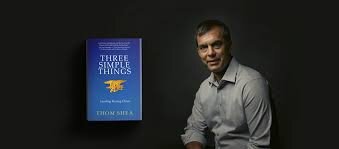“The purpose of this book is to show you that you don’t have to limit yourself to what has been done before. Becoming an entrepreneur is possible, but it will feel strange.” Jim McKelvey (P. 235).
We often think of an entrepreneur as someone who starts their own business or a sole proprietor. Jim McKelvey challenges this concept. The idea of an entrepreneur presented in The Innovation Stack is someone who finds a completely new set of needs to serve and opens up a market to entirely new set of customers. One of the many examples noted example provided was Herb Kelleher, a co-founder for Southwest Airlines. Southwest Airlines opened up a whole new market and helped lead the way to the deregulation of the airline industry which occurred in 1978. Prior to Southwest Airlines, there were so many government regulations and price controls that only business travelers with sizable travel budgets and the wealthy people could fly for their travel needs. Many analysts were convinced that the only people who wanted to travel by air were the wealthy. Well, Southwest proved analysts wrong, and opened up the airline industry to a whole new market of travelers. Along the way, they did not destroy or tear down the existing airlines, but rather overall passenger count has risen substantially across all airlines since the deregulation.
Jim McKelvey is one of the co-founders of Square, the credit card processing device that can be attached to your smartphone. Square has done something similar for small businesses and revenue for those companies as compared to what Southwest Airlines has done for airline travel. Square has created a new market for small business to more easily sell their goods and services.
Entrepreneurial companies which open up new markets are led by individuals who place themselves into an entirely different set of circumstances from a typical small business owner. These people have to explore the unexplored, solve something no one else has solved, get big businesses or big government bureaucracies to change rules, and do so in such a way that is appealing to a whole new market being under-served.
Near the end of the book, there is a section titled, “You Can’t Unread This”. The point being, after reading this book, we should be able to see problems and realize that they can be overcome. The book really focuses on serving a community that is in need. Jim McKelvey also has a business that trains under-privileged, who want to learn, how to code. The curriculum is designed to meet employers needs while keeping the costs to the student as low as possible. There is a whole story behind the motivation for that business as well, but it is the same entrepreneurial disposition. See a need that is being neglected or under-served and figure out how to better serve the affected community.
I suggest reading this book as it has the potential to open your eyes to a myriad of potential problems that need solving, and you just may be the right person to provide the solution.











